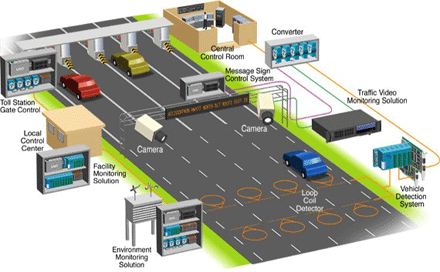In the era of rapid technological advancement, the transportation sector is not left behind. The advent of smart technologies has significantly transformed the way we travel, making journeys safer, more efficient, and environmentally friendly. This article explores the similar smart technologies that are available in transport, their applications, and how they are shaping the future of mobility.
- Autonomous Vehicles
Autonomous vehicles, also known as self-driving cars, are one of the most prominent smart technologies in transport. They use sensors, cameras, radars, and artificial intelligence (AI) to navigate roads without human intervention. Companies like Tesla, Waymo, and Uber are at the forefront of this technology, which promises to reduce accidents caused by human error, improve traffic flow, and provide mobility for those unable to drive.
- Intelligent Transport Systems (ITS)
ITS are advanced applications designed to provide innovative services relating to different modes of transport and traffic management. They use data from a variety of sources, including connected vehicles, infrastructure, and mobile devices, to improve the efficiency, safety, and sustainability of transportation networks. Examples of ITS include traffic prediction systems, smart traffic signals, and real-time transit tracking systems.
- Electric Vehicles (EVs)
While not a new technology, EVs are becoming smarter with advancements in battery technology, charging infrastructure, and vehicle-to-grid systems. Smart features in EVs include regenerative braking, advanced battery management systems, and connectivity with smart grids for optimal charging times. These features not only reduce carbon emissions but also lower the total cost of ownership.
- Mobility-as-a-Service (MaaS)
MaaS is a digital platform that integrates various forms of transport services into a single, accessible solution. It combines options from different transport providers, offering services like route planning, booking, electronic ticketing, and payment services through a single platform. MaaS solutions, such as those offered by Uber and Lyft, provide a seamless and convenient travel experience for users.
- Drones and Unmanned Aerial Vehicles (UAVs)
Drones and UAVs are increasingly being used for transport and delivery services. Companies like Amazon and Zipline are using drones to deliver packages, while others like Uber Elevate are exploring the use of UAVs for passenger transport. These technologies could revolutionize logistics and reduce congestion on our roads.
- Internet of Things (IoT) in Transport
IoT technology in transport involves the use of sensors and software in vehicles and infrastructure to collect and analyze data. This data can be used to improve vehicle performance, enhance safety, and optimize traffic management. For instance, smart parking solutions use IoT to provide real-time information about available parking spaces, reducing the time spent searching for parking.
In conclusion, the transportation sector is undergoing a significant transformation, driven by the adoption of smart technologies. These technologies are not only improving the efficiency and safety of transport but are also paving the way for a more sustainable and inclusive mobility future. As these technologies continue to evolve, we can expect to see even more innovative solutions that will further revolutionize the way we travel.


